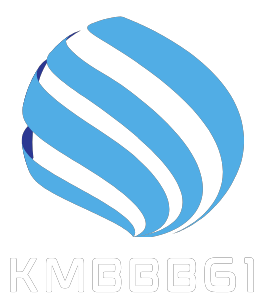If you’re looking to start a business that imports alcohol, obtaining a liquor importing license is a crucial step in the process. This license allows you to legally bring alcoholic beverages from international markets into your country, and it’s governed by a complex set of legal regulations that vary by country and region liquor importing license. Here’s a guide to help you navigate the legal process of obtaining a liquor importing license.
1. Understanding the Regulations
Before starting the licensing process, it’s important to understand the regulations governing liquor importation in your jurisdiction. In most countries, alcohol is highly regulated by both federal and local authorities to ensure public safety, enforce tax policies, and manage distribution channels.
- Federal Regulations: In the U.S., for example, the Alcohol and Tobacco Tax and Trade Bureau (TTB) under the Department of the Treasury regulates alcohol imports. Other countries will have similar federal bodies, such as the UK’s HM Revenue and Customs (HMRC) or Canada’s Canada Border Services Agency (CBSA).
- Local Regulations: In addition to federal oversight, individual states, provinces, or municipalities may have their own rules on alcohol importation, distribution, and sale. In the U.S., this means dealing with both TTB and the Alcoholic Beverage Control (ABC) Board of the state you’re operating in.
2. Determining Eligibility and Requirements
To apply for a liquor importing license, businesses generally need to meet several eligibility criteria and document their compliance with federal and state laws. The requirements may include:
- Business Registration: Your business must be registered with the appropriate government agency. This often means forming a legal business entity such as an LLC, corporation, or partnership.
- Background Checks: Importers may be subject to background checks, including criminal history and financial records, to ensure that the business is operated responsibly and legally.
- Proof of Compliance: You will need to demonstrate that your business complies with local laws regarding taxes, zoning, and trade practices. In some cases, a history of business or financial responsibility may be required.
3. Application Process
The specific steps to apply for a liquor import license will vary based on your location, but the general process typically includes:
- Filing an Application: You will need to submit an application to the relevant authorities, such as the TTB in the U.S. or the local equivalent in your country. The application will require detailed information about your business, including its structure, ownership, and operational details.
- Payment of Fees: Liquor importing licenses often come with significant fees. These can include application fees, as well as annual renewal costs. Fees vary depending on the size and scope of your operation and the local regulatory requirements.
- Customs and Tax Compliance: Alcohol imports are subject to customs duties and taxes, which vary by country. This means you must ensure that all duties are paid and that your imports meet the necessary tax compliance standards.
4. Customs and Importation Procedures
Once you obtain the necessary licensing, you’ll need to understand the logistics of importing alcohol into your country. This includes:
- Customs Clearance: Alcohol imports must clear customs before they can enter the domestic market. This process includes verifying that all paperwork, such as the bill of lading, invoice, and certificate of origin, is accurate and complete. You may also need to provide documentation proving that you have paid all necessary duties and taxes.
- Labeling and Packaging: Liquor imported into many countries must comply with strict labeling and packaging requirements. For example, in the U.S., alcohol bottles must be labeled with specific information such as alcohol content, country of origin, and health warnings.
- Transport and Storage: Imported liquor must be stored in compliance with local laws, ensuring that it remains in a secure and regulated environment until it is sold or distributed.
5. Ongoing Compliance and Renewal
Obtaining a liquor importing license is not a one-time process. It requires ongoing compliance with federal and local regulations. This includes:
- Record-Keeping: Importers are required to maintain detailed records of their transactions, including import volumes, sales, and tax payments. This ensures that they can demonstrate compliance with tax and alcohol distribution laws.
- Renewals: Most liquor licenses require periodic renewal. Renewal processes often involve reviewing your ongoing compliance, submitting updated forms, and paying renewal fees.
- Audits and Inspections: Regulatory authorities may conduct random audits or inspections of your business operations, including warehouses and transportation methods, to ensure compliance with the law.
6. Conclusion
The process of obtaining a liquor importing license is intricate, requiring thorough knowledge of both national and local regulations. Understanding these steps is crucial for anyone seeking to enter the alcohol importation business. From eligibility and paperwork to customs compliance and renewals, attention to detail and adherence to regulations will be key to your success in this industry.
